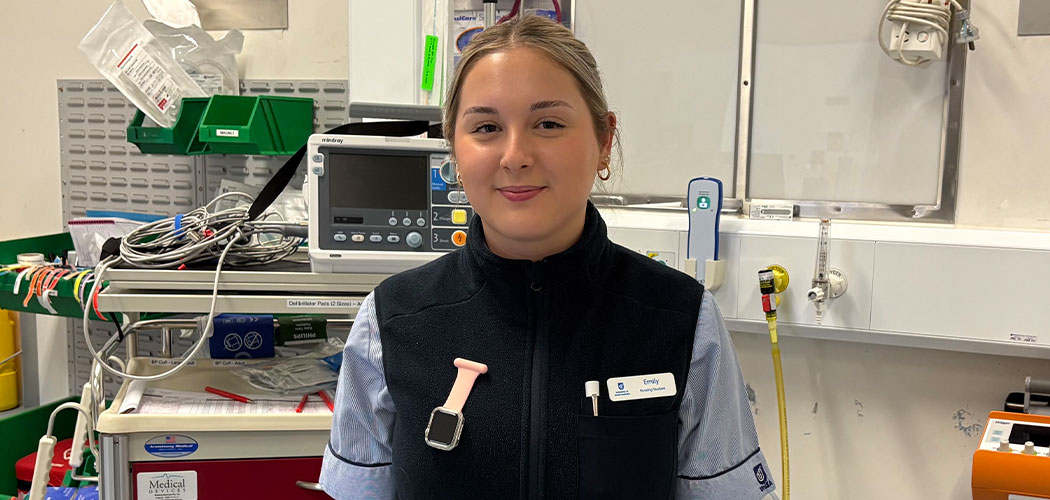Final-year nursing student Emily Hart says the federal government’s new ‘Prac Payment’ is providing vital support during her eight-week clinical placement at a rural hospital in South Australia.
The 21-year-old University of South Australia student says the $331.65 per week payment is helping her cover essential living and out-of-pocket costs and focus on gaining valuable on-the-job experience.
“It’s basically covering my rent for accommodation while I’m on placement, plus fuel to drive home on weekends, and some groceries as well. It’s pretty helpful,” Emily says.
The Commonwealth ‘Prac Payment’, which commenced on 1 July, aims to support eligible nursing and midwifery students manage the significant financial costs associated with undertaking mandatory clinical placements.
Initially, Emily, who lives at home with her parents near Port Adelaide, didn’t think she would qualify for the ‘Prac Payment’. But upon looking into it more closely, she realised she could apply.
Emily, who works at Kmart part-time during the week outside of her studies, met the means-testing eligibility criteria by demonstrating she works more than 15-hours per week and doesn’t earn more than $1,500 per week (pre-tax) on average. She had to provide copies of payslips to support her application.
Emily says the payment, distributed fortnightly by universities, is easing the financial pressure she and fellow students face during lengthy placement blocks where they are unable to work.
She is currently on placement at Waikerie Hospital, learning the ropes on the general ward and emergency department.
“Luckily, my other placements weren’t rural, so I was still living at home and didn’t have to worry about accommodation and other expenses as much,” she explains.
“But I don’t think I’d be able to support myself on a rural placement like this without the extra help.”
Emily says the safety net of the ‘Prac Payment’ has already reduced her stress while on placement.
“It’s one big less thing to worry about and a little extra support.
“I’ve got a few friends who got approved for it and they’re saying the same thing.”
While Emily found the application process straightforward, she says some of her fellow students hit roadblocks due to being on holiday during June and, therefore, not being able to provide job pay slips to apply for the ‘Prac Payment’ prior to commencing their placement.
Overall, she believes the payment could play an important role in helping more nursing and midwifery students complete their studies and enter the professions.
“There’s a lot of people who are put off because of how many [clinical placement] hours we have to do. It’s not sustainable for them to be working full-time but not receiving any payment for it and then not being able to work on the weekends because we’re not supposed to work outside of placement hours.”
Find out more about applying for the Commonwealth ‘Prac Payment’ here








